HONOUR program continues to integrate homeless back into community
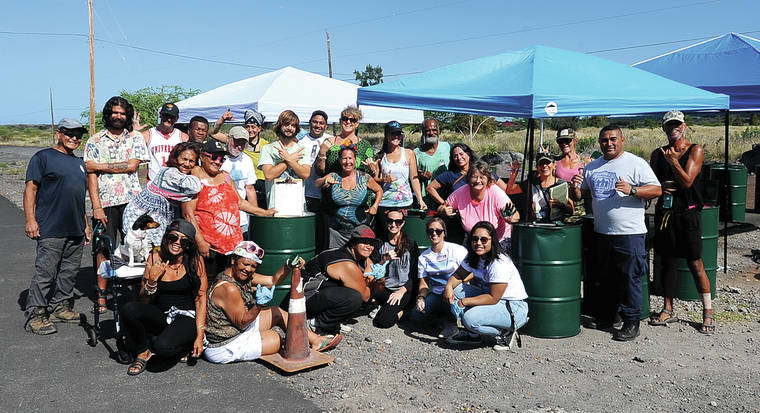
Homeless and community volunteers get together to paint the rubbish cans at Old Kona Airport Park Thursday as part of the HONOUR program. (Laura Ruminski/West Hawaii Today)
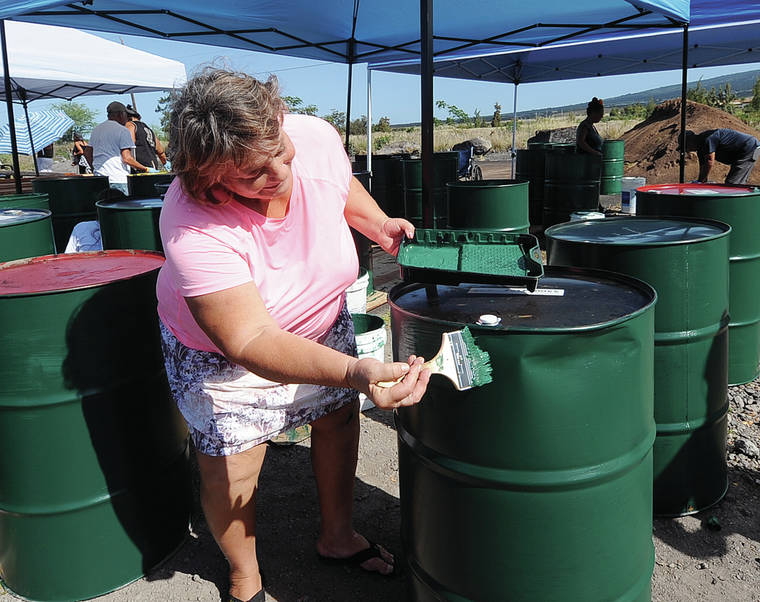
HONOUR program member Autumn Meier paints a rubbish can at Old Kona Airport Park. (Laura Ruminski/West Hawaii Today)
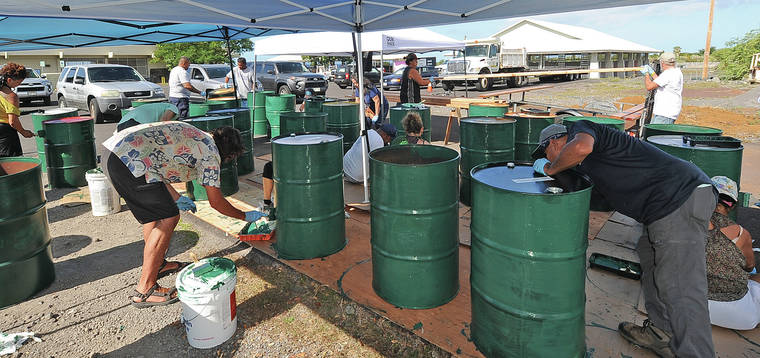
Homeless and community volunteers get together to paint the rubbish cans at Old Kona Airport Park as part of the HONOUR program. (Laura Ruminski/West Hawaii Today)
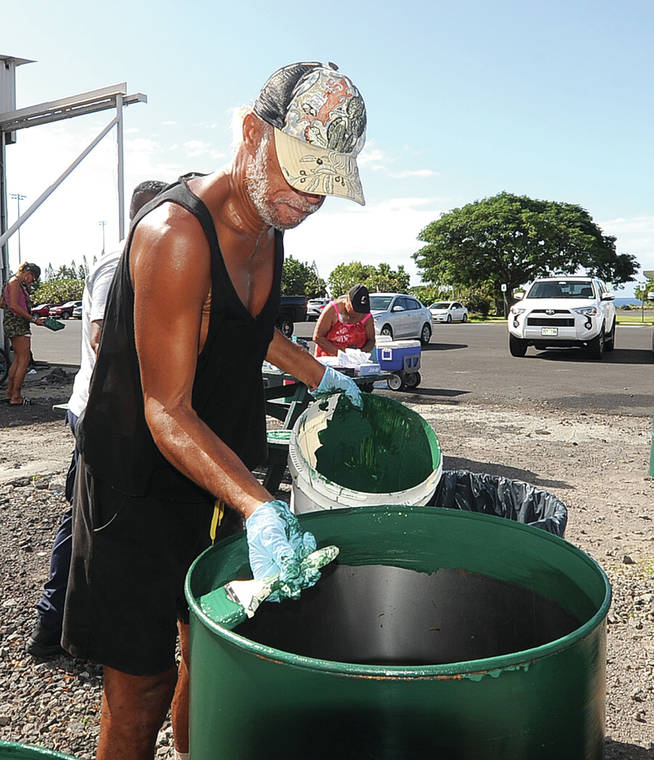
HONOUR program member Luka Kekoa paints a rubbish can at Old Kona Airport Park. (Laura Ruminski/West Hawaii Today)
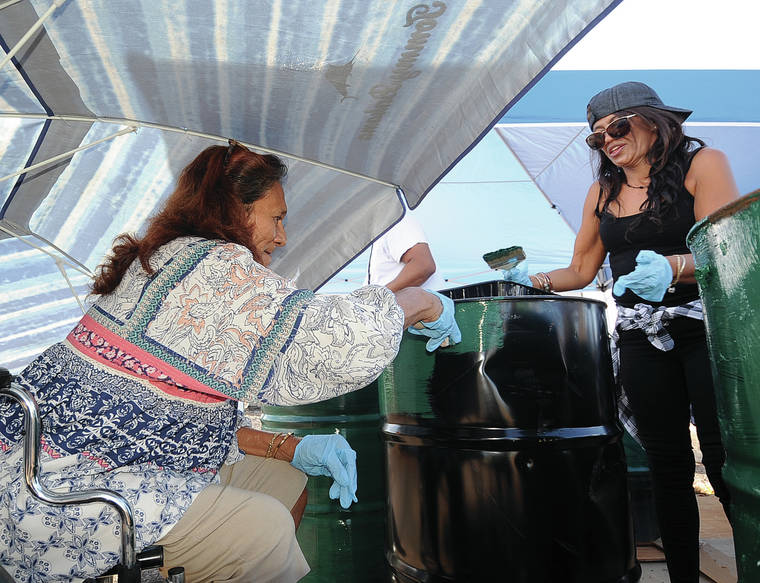
HONOUR program members Debra Robin, left and Sharla Palek paint a rubbish can Thursday at Old Kona Airport Park. (Laura Ruminski/West Hawaii Today)
A growing number of homeless individuals are coming together to give back to the community through the HONOUR program.
A growing number of homeless individuals are coming together to give back to the community through the HONOUR program.
The basis of HONOUR (Homeless Outreach Nurturing Our Community), the brainchild of Hawaii Police Department Kona Community Policing Officers Wyatt Nahale and Reuben Pukahi, is to integrate the homeless back into the community by having them work on projects under positive guidance.
ADVERTISING
Last Thursday, 17 homeless individuals worked side-by-side with community volunteers painting nearly three dozen 55-gallon drums used as trash receptacles at Old Kona Airport Park.
Darciea Hilderbrand, who was putting a fresh coat of paint on one of the 33 drums under a pop-up canopy, said it felt good to be there.
“It’s giving back to the aina,” she said. “You have to take care of the aina and it will take care of you.”
Whitney Rutherford said she is always picking up rubbish down at the park.
“We got to do our part. It’s good doing this together because we need each other out here,” she said.
At the program’s inception in November, Nahale said a lot of homeless individuals needed a sense of humanity, so why not have it come from a police officer taking the humanitarian role beside the enforcement role?
He said the program he helped create is based upon the police department and homeless community coming together to restore faith back into the homeless population again. He’s heard from individuals who’ve told him that they are tired of being labeled because of the troublemakers and want to do something good for the community. In addition to getting homeless individuals to take pride in their community through service, HONOUR has connected two individuals with family on the mainland.
Nahale had encountered a homeless woman who had expressed interest in leaving the island. Partnering with Regina Weller of 808 Homeless Task Force, they were able to get the woman’s family to fly to Kona and return with the woman back home to the mainland.
A 61-year-old disabled man who lost his job after working 30 years at a local Chinese restaurant had been living on the streets for the past nine years. Having been assaulted multiple times, he lost his IDs. Nahale said he met the man at an HONOUR meeting and after hearing his story knew he had to help him.
Nahale contacted Weller who got the man new identifications and helped reinstate his disability payments.
They were able to connect the man with a brother in Fresno, California, who agreed to have the man live with him in their childhood home.
Weller still stays in contact with him and said she asked him if he was happy there.
“He said ‘I have my own room and I have my own bed. I am happy,’” recounted Weller.
Those stories of success encourage Nahale and Pukahi to forge forward with the program.


